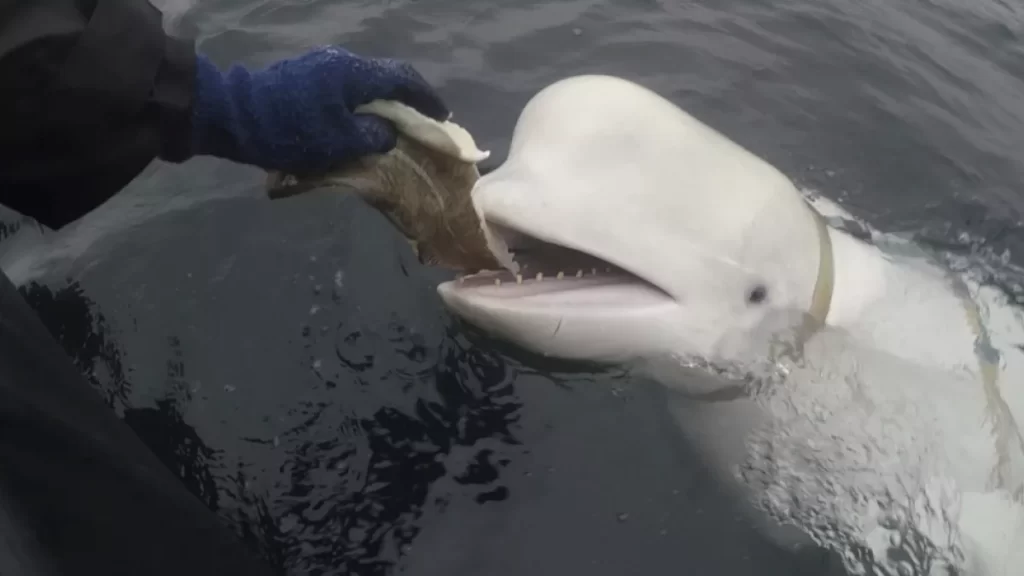Russian ‘spy whale’ was not shot, say police
3 min read

A whale previously suspected of being a Russian spy has been cleared of any foul play following a police autopsy. The beluga, known as Hvaldimir, was found dead on September 1st, leading to initial claims that he had been shot. However, a recent forensic examination has determined that the whale’s death was not the result of gunfire but was caused by a stick lodged in its mouth.
Hvaldimir first captured public attention in April 2019 when he was discovered off the coast of Norway with a camera strapped to his body, sparking speculation that he might be involved in espionage. The whale’s body was later found floating near Risavika, a town on Norway’s southwestern coast.
Following the discovery, two animal rights organizations, One Whale and Noah, filed complaints and called for an investigation into the circumstances surrounding the whale’s death. Regina Haug, founder of One Whale, reported seeing what she believed to be multiple bullet wounds on the whale’s carcass. Initial photos shared on social media by One Whale appeared to show bloodied marks, which they interpreted as signs of gunshot injuries.
Siri Martinsen, director of Noah, described the injuries as “alarming” and suggested that they could indicate a criminal act. She expressed shock at the potential violence inflicted on the whale.
However, a detailed autopsy revealed that the cause of death was not gunshot wounds but rather a 35-centimeter-long stick, approximately 14 inches, that had become lodged in the whale’s mouth. Norwegian police confirmed that while Hvaldimir had sustained some superficial injuries, there was no evidence to suggest that he had been shot.
Police for the South West district stated that their investigation found no indications of human activity directly leading to the whale’s death. Consequently, they have decided not to pursue further inquiries into the matter. A comprehensive report on the findings is expected to be released in two weeks.
Hvaldimir gained widespread notoriety after he was seen in Norwegian waters in 2019 with a harness labeled “Equipment of St Petersburg,” leading to speculation that he might be part of a Russian military operation. The beluga’s unusual equipment and behavior fueled rumors that he could be used for espionage.
The whale’s name, a play on the Norwegian word for whale (“hval”) and Russian President Vladimir Putin’s first name, further contributed to the intrigue surrounding his origins. Hvaldimir was first spotted approaching Norwegian boats near Ingoya Island, located about 415 kilometers (260 miles) from Murmansk, the base of Russia’s Northern Fleet.
Beluga whales are rarely seen so far south of their typical high Arctic habitat, adding to the mystery of Hvaldimir’s presence in the region. Russia has a known history of training marine mammals, such as dolphins, for military purposes. Whale pens near naval bases in Murmansk, as reported by the Barents Observer, have fueled speculation about the country’s use of marine animals for such operations.
Despite the sensational theories about Hvaldimir being a spy, the investigation has clarified that his death was not caused by any criminal action. The conclusion of the autopsy emphasizes the importance of relying on thorough forensic analysis to determine the true causes behind such incidents, rather than speculation based on initial appearances.